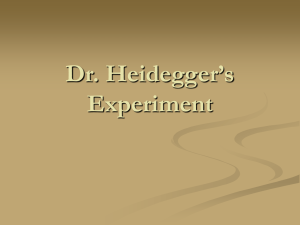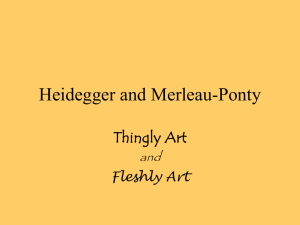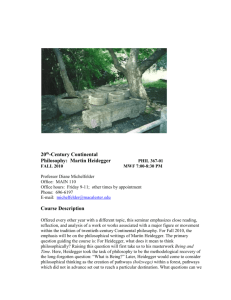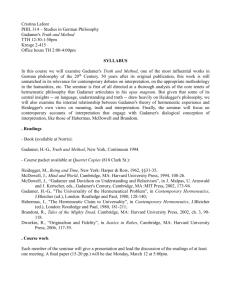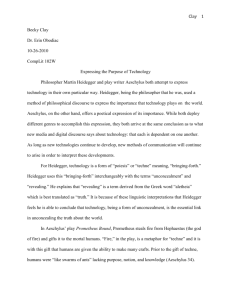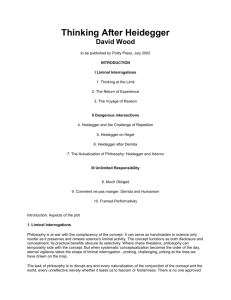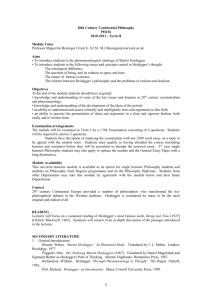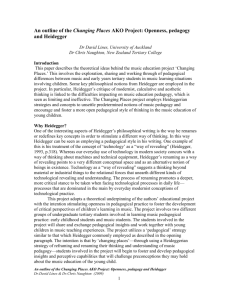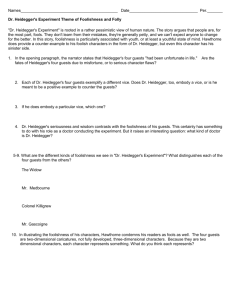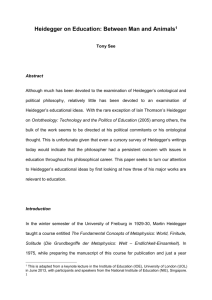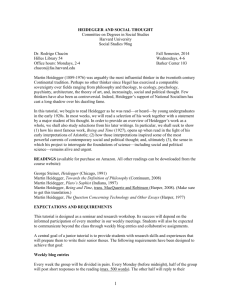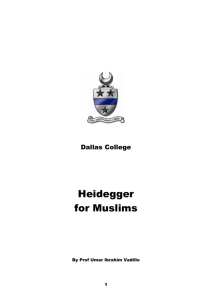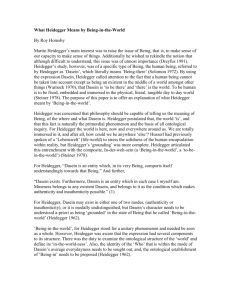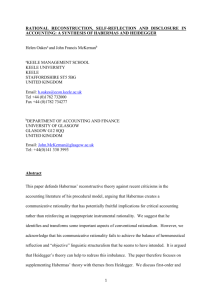Summary
advertisement
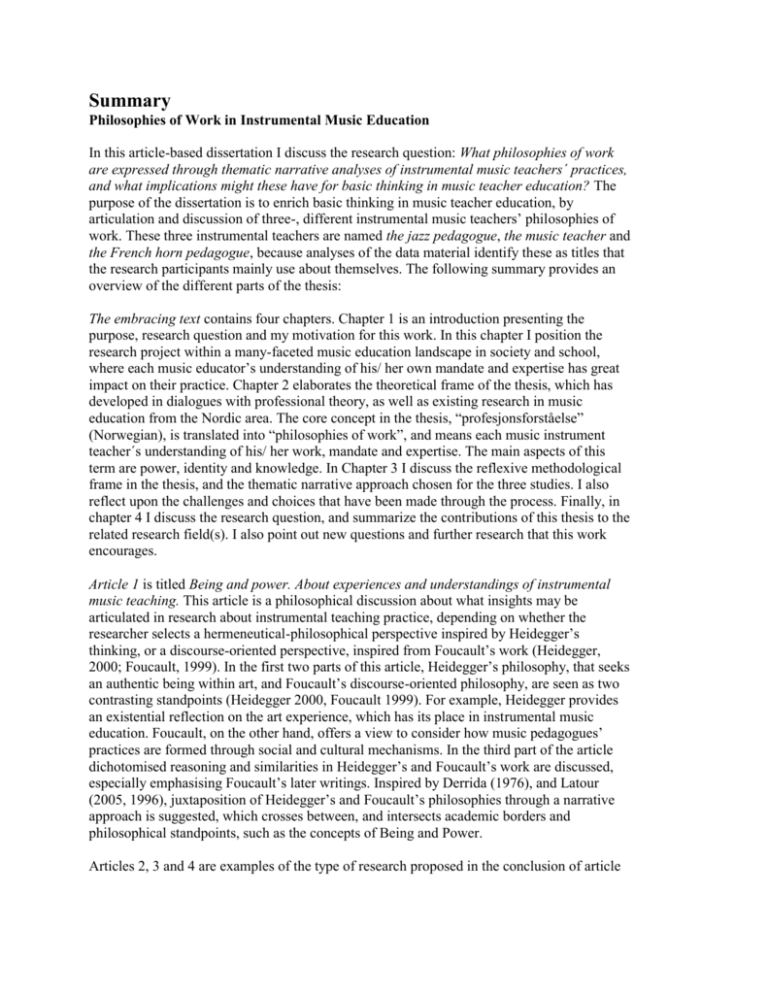
Summary Philosophies of Work in Instrumental Music Education In this article-based dissertation I discuss the research question: What philosophies of work are expressed through thematic narrative analyses of instrumental music teachers´ practices, and what implications might these have for basic thinking in music teacher education? The purpose of the dissertation is to enrich basic thinking in music teacher education, by articulation and discussion of three-, different instrumental music teachers’ philosophies of work. These three instrumental teachers are named the jazz pedagogue, the music teacher and the French horn pedagogue, because analyses of the data material identify these as titles that the research participants mainly use about themselves. The following summary provides an overview of the different parts of the thesis: The embracing text contains four chapters. Chapter 1 is an introduction presenting the purpose, research question and my motivation for this work. In this chapter I position the research project within a many-faceted music education landscape in society and school, where each music educator’s understanding of his/ her own mandate and expertise has great impact on their practice. Chapter 2 elaborates the theoretical frame of the thesis, which has developed in dialogues with professional theory, as well as existing research in music education from the Nordic area. The core concept in the thesis, “profesjonsforståelse” (Norwegian), is translated into “philosophies of work”, and means each music instrument teacher´s understanding of his/ her work, mandate and expertise. The main aspects of this term are power, identity and knowledge. In Chapter 3 I discuss the reflexive methodological frame in the thesis, and the thematic narrative approach chosen for the three studies. I also reflect upon the challenges and choices that have been made through the process. Finally, in chapter 4 I discuss the research question, and summarize the contributions of this thesis to the related research field(s). I also point out new questions and further research that this work encourages. Article 1 is titled Being and power. About experiences and understandings of instrumental music teaching. This article is a philosophical discussion about what insights may be articulated in research about instrumental teaching practice, depending on whether the researcher selects a hermeneutical-philosophical perspective inspired by Heidegger’s thinking, or a discourse-oriented perspective, inspired from Foucault’s work (Heidegger, 2000; Foucault, 1999). In the first two parts of this article, Heidegger’s philosophy, that seeks an authentic being within art, and Foucault’s discourse-oriented philosophy, are seen as two contrasting standpoints (Heidegger 2000, Foucault 1999). For example, Heidegger provides an existential reflection on the art experience, which has its place in instrumental music education. Foucault, on the other hand, offers a view to consider how music pedagogues’ practices are formed through social and cultural mechanisms. In the third part of the article dichotomised reasoning and similarities in Heidegger’s and Foucault’s work are discussed, especially emphasising Foucault’s later writings. Inspired by Derrida (1976), and Latour (2005, 1996), juxtaposition of Heidegger’s and Foucault’s philosophies through a narrative approach is suggested, which crosses between, and intersects academic borders and philosophical standpoints, such as the concepts of Being and Power. Articles 2, 3 and 4 are examples of the type of research proposed in the conclusion of article 1. I have asked the same research question to three different practices. These three articles have the same form, with an introduction that motivates the discussions, a presentation of the research participant and his/her context, a discussion about the research design and the data material, a researcher´s narrative from the practice, and finally a theoretical and philosophical discussion about the identified themes, or pivots, in each study. Article 2 is titled Music education as dialogue between the outer and the inner. A jazz pedagogue’s philosophy of work. The jazz pedagogue in this study is nationally and internationally recognized as a performer and educator, and is honoured for his work of bringing jazz education into the system of higher music education in Norway. Analysis of the various data material denotes three binary pivots, indicating a practice embodied as an existential dialogue between inner and outer aspects of music and human beings. The identified pivots are named tradition/person, music as heard/music as not-heard, and teacher/performer. Insights form this study are presented in a researcher´s narrative, and discussed with inspiration from Heidegger’s’ philosophy about the arts and human beings (Heidegger, 2000), Small´s notion of “musicking” (Small, 1996, 1987), and Pio`s discussions about musicality (Pio, 2007, 2006). The discussion relates to formal intentions for basic music education in Norway. Article 3 is titled A music teacher’s philosophy of work: Bridging performance, society and education. In this article I discuss the philosophy of work of an instrumental music teacher with multiple tasks in basic music education in Norway. This teacher is positioned in a small community school of music and art, which has been honoured for manifesting a `best practice` for such schools. Through thematic narrative analyses of the data material, three pivots are identified in this teachers practice; cultural life, school, and artefacts. After the researcher’s narrative: The Music Teachers’ Every day, these pivots are discussed in a theoretical frame inspired by the thoughts of Gadamer, Heidegger and Small (Gadamer, 2010; Heidegger, 2000, Small, 1987, 1996). Finally, insights from this discussion are directed towards the processes of professionalization in the field of performer-teachers. Article 4 is titled A French horn pedagogue’s philosophy of work. From beginner to expert, with teacher education as a terminal point. This article is a discussion of the philosophy of work in a French horn pedagogue´s practice, positioned in a community school of music and art that is renowned for its talent programme. This French horn pedagogue´s practice relates to professional norms for being a musician, and the pivots identified in her teaching practice are: French horn player, strategies, and reconciling. After the researcher´s narrative, the didactopographer, these pivots are discussed within a theoretical frame inspired by Gadamer´s thoughts about Bildung, sensus communis and eloquentia (Gadamer, 2010). In conclusion, the discussion relates to music teacher education, stressing the necessity to emphasise the basis of existence for being a music pedagogue.
